Here's what N.L.'s business, labour and political leaders think of the 2023 budget
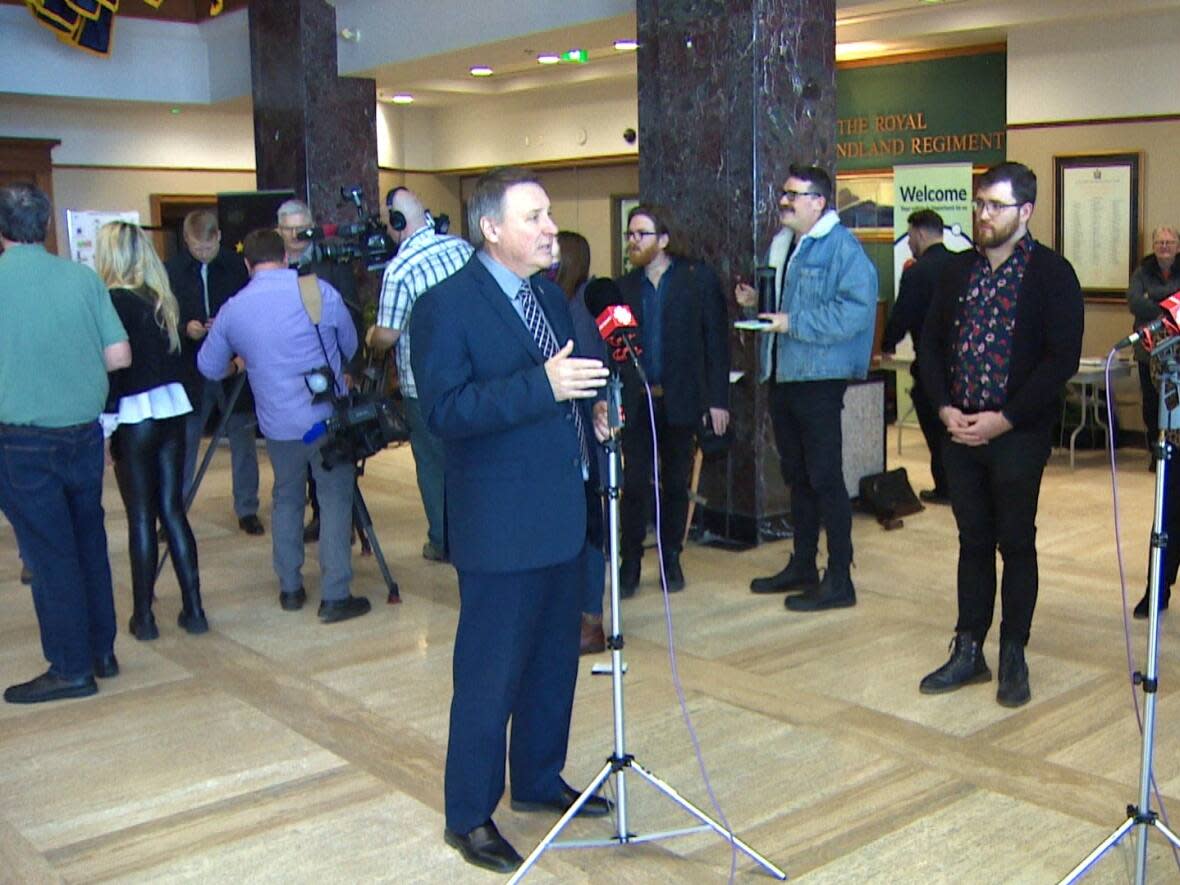
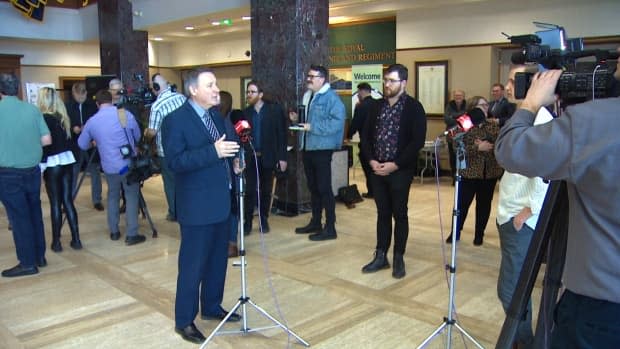
With budget day 2023 in the books, teachers, opposition parties and union leaders, among others, are weighing in on what they like about it — and what left them wanting more.
The provincial teachers' association, for one, feels left out in the cold by the budget, released Thursday afternoon by Finance Minister Siobhan Coady.
Newfoundland and Labrador Teachers' Association president Trent Langdon said there wasn't enough money in Thursday's budget to address the educational system's problems with recruitment and retention.
"There was a very small section on education. There's a deep need for a comprehensive strategy in this province right now to address the recruitment and retention issues," Langdon said shortly after the budget was released.
"There needs to be some kind of acknowledgement of that, that there needs to be a long-term plan."
The province upped the teaching services budget by $12 million, but Langdon said that won't address the bigger problem.
"We'll see some positions come into the teacher force — a positive — but when we're dealing with teacher shortages anyway, we're dealing with hard-to-fill positions, it's a much bigger issue than just some money," he said.
"Retention needs to be a big focus right now. We need to give people a reason to want to stay where they are. We're hearing from members who are totally frustrated in the jobs they're in, they're feeling overwhelmed, the workload is heavy. We need a system where once again it's rewarding to be in that system."
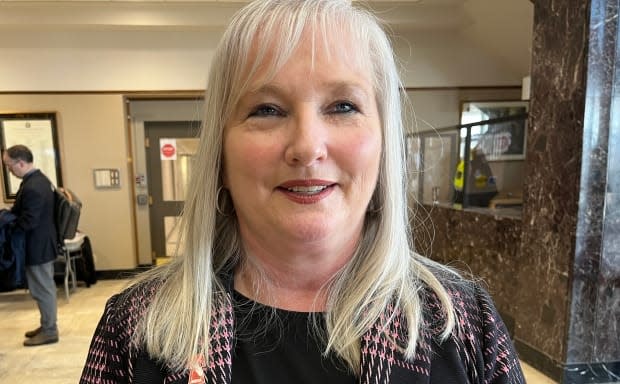
Sherry Hillier, president of the Newfoundland and Labrador branch of the Canadian Union of Public Employees, said the budget missed the mark for the more than 1,400 members she represents in health care.
"It wasn't a bad budget overall. It lacks certain areas, which we're always going to see, but there was a lot of good things in the budget, a lot of spending. We could have seen a lot more," Hillier said.
"I would have liked to see more for the retention part for health-care workers. They did the retention with the doctors and the registered nurses and the nurse practitioners that were mentioned in the budget, but none of our front-line health-care workers were mentioned in that budget."
Hillier said her members are burned out and wanted to see wage increases.
"Our members have worked very hard over the past few years. The three years of COVID only injured them more," she said. "Our members are broken."
Interim NDP Leader Jim Dinn said the five per cent increase to income support and seniors' benefits isn't enough to address the cost of living.
"If you're underwater two feet and I raise you by five per cent, you're still drowning," Dinn said.
"People who are struggling on a minimum wage job or a modest income have just watched their income being eaten away by inflation. Somewhere along the line we've got to take a look at the point of not just picking a number of five per cent and applying it, but what is needed to fix the problem."
Dinn also said the health-care announcements won't amount to much if the government doesn't address underlying social determinants of health first.
"We're throwing good money away and we're not fixing the problem," he said.
Some optimism
Others say they're remaining cautiously optimistic.
Interim PC Leader David Brazil said the budget is good "in theory" but wants to know how health-care problems will actually be fixed.
"We want to see how it's going to be implemented. I want to see how they're going to fill those 750 nursing positions in Newfoundland and Labrador," he said.
"I want to see how they're going to bring in 100 new physicians that can do family care.… I want to see how they're going to open those emergency rooms, not next year, but next week in these communities that haven't had 24-hour service when it comes to emergency rooms."
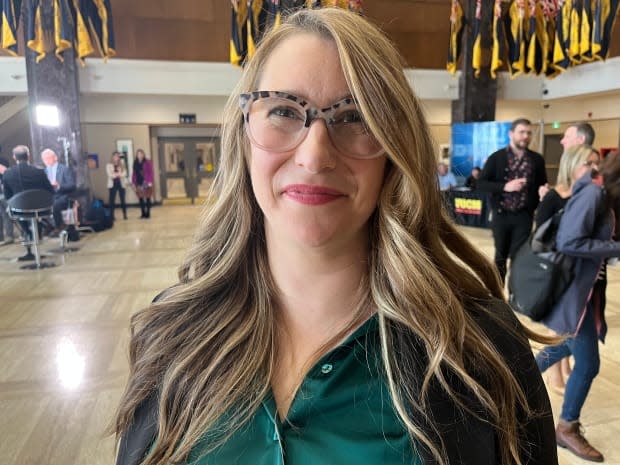
Jaclyn Sullivan, executive director of the Newfoundland and Labrador Employers' Council, says there's still work to do.
"Debt and spending are up a little over last year, so that's concerning, but it looks like they're making positive choices about where they're making their investments," she said.
"[We're] really pleased to see some tax relief that will help open up economic growth and opportunity. The next step now is holding them accountable to assure that they implement projects they have announced, on time and on budget, and that they're spending in responsible ways that improves outcomes to citizens."
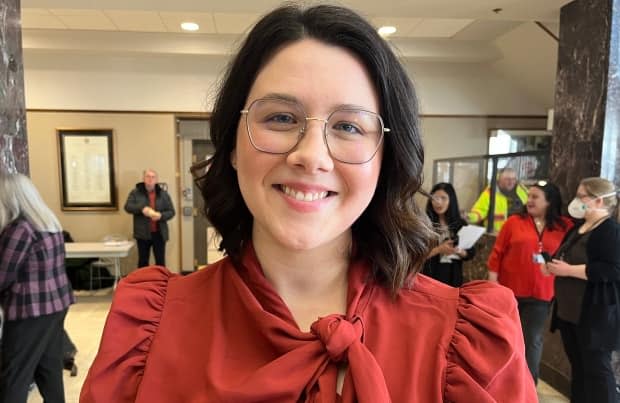
Jessica McCormick, president of the Newfoundland and Labrador Federation of Labour, said it appears the government is listening to the people but said there's more work to do.
"In pre-budget consultations with Minister Coady, the federation of labour spoke about two key themes. One was around affordability and one was around the crisis in health care. Clearly the minister and the provincial government have picked up on those key themes in this budget," she said.
"In health care in particular, people [are] facing just tremendous burnout and we're competing globally now for workers to try to fill job vacancies in the province. Making steps to deal with retention is going to be key here."


